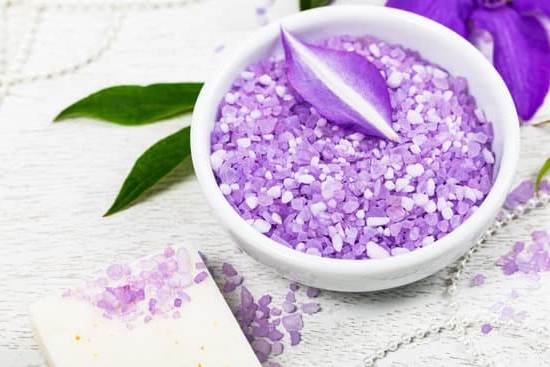Aromatherapy is a practice that has gained significant popularity in recent years, with more and more individuals turning to essential oils for various health and wellness benefits. But is aromatherapy healthy? This question is at the forefront of many discussions surrounding this alternative therapy method.
The concept of aromatherapy involves using essential oils extracted from plants to promote physical, mental, and emotional well-being. These oils are believed to have therapeutic properties that can positively impact an individual’s health. As the interest in natural remedies and holistic approaches to wellness continues to rise, aromatherapy has emerged as a favored choice for many seeking alternative healing methods.
Dating back centuries, aromatherapy has a rich history that dates back to ancient civilizations where essential oils were used for their medicinal purposes. Over time, this practice has evolved and been refined into the modern-day aromatherapy we know today. With its wide range of benefits and applications, aromatherapy is not only a trend but also a well-established practice in the realm of holistic health.
History of Aromatherapy
Aromatherapy has a rich history that dates back centuries, with roots in ancient civilizations such as Egypt, Greece, and China. The concept of using essential oils for healing and overall well-being has been passed down through generations and continues to be a popular practice in modern times.
In ancient Egypt, aromatic plants and resins were used for medicinal purposes, religious rituals, and even during the embalming process. This early use of essential oils paved the way for what is now known as aromatherapy.
As time progressed, aromatherapy evolved across different cultures and regions. In Europe during the Middle Ages, essential oils were used to combat illnesses like the bubonic plague. Fast forward to the 20th century, when French chemist René-Maurice Gattefossé coined the term “aromatherapy” after experiencing firsthand the healing properties of lavender oil on burns. This pivotal moment led to further exploration and research into the therapeutic benefits of essential oils.
Today, aromatherapy is widely practiced around the world and is integrated into various wellness routines. With scientific advancements shedding light on how essential oils interact with our body’s chemistry, aromatherapy has gained credibility in both traditional medicine and alternative therapy circles. The history of aromatherapy reflects its enduring appeal and efficacy in promoting overall health and well-being. Aromatherapy truly stands the test of time as a holistic approach to enhancing physical, mental, and emotional health.
Benefits of Aromatherapy
Aromatherapy has gained significant traction in the wellness industry for its potential to offer a holistic approach to health and well-being. The use of essential oils in aromatherapy is rooted in the belief that these natural plant extracts can positively impact physical, mental, and emotional health.
Essential oils are often praised for their therapeutic properties, ranging from soothing muscle pain and reducing stress to enhancing focus and improving mood. As more individuals seek out alternative methods for self-care, aromatherapy is increasingly being recognized as a valuable tool in promoting overall wellness.
One of the primary physical benefits of aromatherapy is its ability to alleviate various ailments such as headaches, insomnia, and digestive issues. Essential oils like lavender, peppermint, and ginger have been traditionally used for their analgesic and anti-inflammatory properties which may bring relief from discomfort. Additionally, certain essential oils possess antiseptic and antimicrobial properties that can support the body’s immune system, aiding in the prevention of common illnesses.
On a mental and emotional level, aromatherapy is known to have profound effects on mood regulation and cognitive function. Scents like citrus fruits or rosemary are believed to uplift spirits and promote mental clarity, making them popular choices for combating feelings of anxiety or fatigue. By stimulating the olfactory system, essential oils can trigger responses in the brain that influence emotions and memory retention.
This makes aromatherapy not only a pleasant sensory experience but also a potential tool for managing stress levels and cultivating a positive mindset. In this way, incorporating aromatherapy into one’s daily routine
How Aromatherapy Works
Aromatherapy works by harnessing the natural power of essential oils to promote physical, mental, and emotional well-being. Essential oils are highly concentrated plant extracts that have been used for centuries for their therapeutic properties. When these oils are inhaled or applied to the skin, they can trigger various responses in the body and mind. The science behind aromatherapy lies in how these essential oils interact with our senses and biochemical pathways to produce beneficial effects.
Here are some key ways in which aromatherapy works:
- Smell: When essential oils are inhaled through the nose, they stimulate the olfactory system, which is connected to the brain’s limbic system. This area of the brain is responsible for emotions, behavior, memory, and even certain physiological functions like heart rate and blood pressure.
- Absorption: Essential oils can also be absorbed through the skin when applied topically. Once absorbed, they can enter the bloodstream and interact with different systems in the body. For example, some essential oils have anti-inflammatory properties when applied to the skin.
- Inhalation: A common way to use essential oils is through inhalation using a diffuser or steam inhalation method. Inhaling essential oils allows them to quickly enter the bloodstream via the lungs and produce immediate effects on mood and relaxation.
Understanding how aromatherapy works is crucial for maximizing its benefits and ensuring safe usage. While it can be a powerful tool for holistic wellness, it is important to use high-quality essential oils and follow proper guidelines for dilution and application methods. By incorporating aromatherapy into your daily routine mindfully, you can experience its full potential to support your overall health and well-being.
Risks and Side Effects
Aromatherapy has gained significant popularity in wellness practices, offering a natural way to promote physical, mental, and emotional well-being. However, it is crucial to understand that not all aspects of aromatherapy are entirely risk-free. When considering whether aromatherapy is healthy, it is essential to be aware of the potential risks and side effects associated with its practice.
One of the main concerns regarding aromatherapy is skin irritation or allergic reactions caused by essential oils. Some individuals may have sensitivities to certain compounds found in essential oils, leading to redness, itching, or even rashes when applied topically. It is vital to perform a patch test before using any new essential oil to check for any adverse reactions and dilute them properly to minimize the risk of skin irritation.
Another risk of aromatherapy is the improper use of essential oils, which can lead to unintended consequences. Ingesting essential oils without proper guidance can be harmful and toxic to the body. Essential oils are highly concentrated substances that should be used with caution and according to recommended guidelines. Additionally, using too much essential oil in a diffuser or other methods of application can cause respiratory issues or headaches in some individuals.
| Risks and Side Effects | Aromatherapy |
|---|---|
| Skin irritation or allergic reactions | potential risk |
| Improper use leading to toxic effects | consequences |
| Respiratory issues from excessive use | harmful effects |
Choosing the Right Essential Oils
Understanding Essential Oils
When considering which essential oils to use for aromatherapy, it is crucial to understand what essential oils are and how they are extracted. Essential oils are highly concentrated plant extracts that capture the natural scent and flavor of the plant.
These oils are typically extracted through steam distillation or cold pressing, ensuring that the therapeutic properties of the plants are preserved. It is important to note that not all essential oils are created equal, as their purity and quality can vary significantly depending on various factors such as extraction methods, sourcing, and production processes.
Quality Matters
One of the key factors to consider when choosing essential oils for aromatherapy is the quality of the oil. High-quality essential oils are pure, undiluted, and free from synthetic ingredients or contaminants. Look for essential oil brands that provide detailed information about their sourcing, production methods, and quality testing procedures.
Additionally, choose organic essential oils whenever possible to ensure that they have been produced without harmful chemicals or pesticides. Investing in high-quality essential oils may be more expensive, but it is worth it to ensure safety and effectiveness in your aromatherapy practice.
Popular Essential Oils for Aromatherapy
There is a wide variety of essential oils available for aromatherapy, each with its own unique benefits and properties. Some popular essential oils used in aromatherapy include lavender for relaxation and stress relief, peppermint for mental clarity and energy boost, eucalyptus for respiratory support, and lemon for mood upliftment.
When selecting essential oils for your aromatherapy routine, consider your specific needs and preferences to choose the ones that will best support your overall health and well-being. Remember to always dilute essential oils properly before applying them topically and consult with a qualified aromatherapist or healthcare provider if you have any concerns about using essential oils safely.
Overall, choosing the right essential oils is a critical step in ensuring safe and effective aromatherapy practices. By understanding the quality of essential oils, selecting high-quality products, and exploring popular options suited to your needs, you can harness the therapeutic benefits of aromatherapy for improved health and wellness.
Remember that proper research and caution should always be exercised when incorporating essential oils into your daily routine to maximize their positive effects on both the body and mind while minimizing any potential risks associated with improper use.
Different Ways to Use Aromatherapy
Aromatherapy offers a wide range of benefits for both physical and mental well-being, making it a popular choice in wellness practices. One of the key aspects to consider when delving into aromatherapy is the various methods of application. Among the most common ways to use essential oils are through diffusers, inhalation, and topical application. Each method offers unique advantages and caters to different preferences and needs.
Using diffusers is one of the most convenient ways to enjoy the benefits of aromatherapy. Diffusers disperse essential oils into the air, allowing you to breathe in the aroma and experience its effects. This method is excellent for creating a calming atmosphere at home or work, promoting relaxation, reducing stress, and improving overall mood. There are different types of diffusers available, such as ultrasonic diffusers that also act as humidifiers, providing added moisture to the air.
Inhalation is another effective way to incorporate aromatherapy into your daily routine. By adding a few drops of essential oil to a bowl of steaming water or using an aromatic inhaler, you can directly inhale the scent of the oil. This method allows for quick absorption into the bloodstream through the lungs, providing immediate relief for respiratory issues like congestion or allergies. Additionally, inhalation can help enhance focus and concentration, making it beneficial during work or study sessions.
| Method | Advantages |
|---|---|
| Diffusers | Create a calming atmosphere; promote relaxation; reduce stress; improve mood |
| Inhalation | Quick absorption into bloodstream; provide relief for respiratory issues; enhance focus and concentration |
Incorporating Aromatherapy Into Daily Life
Aromatherapy is a holistic healing treatment that uses natural plant extracts, known as essential oils, to promote health and well-being. One of the key benefits of incorporating aromatherapy into daily life is its ability to reduce stress and anxiety levels. By inhaling specific essential oils or using them in a diffuser, individuals can create a calming environment that promotes relaxation and helps alleviate symptoms of stress. Some popular essential oils for stress relief include lavender, chamomile, and bergamot.
Another way aromatherapy can be integrated into daily routines is by using essential oils to improve sleep quality. Certain scents like lavender and cedarwood have been shown to have sedative effects that can aid in falling asleep faster and promoting restful sleep throughout the night. Adding a few drops of these essential oils to a pillow spray or diffuser before bedtime can create a soothing atmosphere conducive to relaxation and better sleep.
Additionally, aromatherapy can also be used to boost energy levels and enhance focus during the day. Citrus essential oils such as lemon or orange are known for their invigorating properties that can help combat fatigue and increase mental clarity.
Diffusing these energizing scents in your workspace or using them in a portable inhaler can provide a natural pick-me-up when feeling tired or unfocused. Overall, incorporating aromatherapy into daily life not only enhances physical health but also contributes to mental wellness by promoting relaxation, restful sleep, and increased energy levels throughout the day.
Conclusion
In conclusion, it is evident that aromatherapy can offer a plethora of health benefits when used appropriately and safely. The practice of using essential oils to promote physical, mental, and emotional well-being has gained significant popularity in wellness practices over the years. From reducing stress and anxiety to improving sleep quality and enhancing mood, aromatherapy has shown promising results in supporting overall health.
When considering whether aromatherapy is healthy, it is essential to understand the potential risks and side effects associated with improper use of essential oils. While aromatherapy can be a safe and effective complementary therapy when used correctly, it is crucial to exercise caution and seek guidance from professionals when incorporating essential oils into daily routines.
By choosing high-quality oils, understanding proper dilution methods, and being mindful of individual sensitivities, individuals can experience the benefits of aromatherapy without compromising their health.
Ultimately, the key to incorporating aromatherapy into one’s lifestyle lies in making informed choices and listening to one’s body’s needs. Whether through diffusers, inhalation techniques, or topical applications, there are various ways to harness the power of essential oils for improved well-being.
By taking the time to explore different scents, creating personalized blends, and establishing a consistent practice, individuals can reap the diverse benefits that aromatherapy offers for their physical health, mental clarity, and emotional balance. So, to answer the question: Yes – when practiced mindfully and responsibly,
Frequently Asked Questions
Who Should Avoid Aromatherapy?
Aromatherapy may not be suitable for individuals with allergies, skin conditions, or respiratory issues, as certain essential oils can trigger adverse reactions. Pregnant women and children should also be cautious due to potential sensitivities.
What Do Doctors Say About Aromatherapy?
Doctors generally have mixed opinions on aromatherapy. While some acknowledge its potential benefits for relaxation and stress relief, others remain skeptical about the scientific evidence supporting its effectiveness in treating medical conditions. It is often viewed as a complementary therapy rather than a primary treatment.
Is Aromatherapy Medically Proven?
The efficacy of aromatherapy from a medical perspective is still under debate. While some studies suggest that certain essential oils can have therapeutic effects, the overall scientific evidence is limited. More research is needed to determine the true benefits and limitations of aromatherapy in a clinical setting.

Are you looking for a natural way to improve your health and wellbeing?
If so, aromatherapy may be the answer for you.



